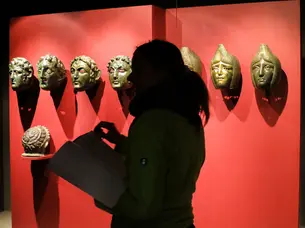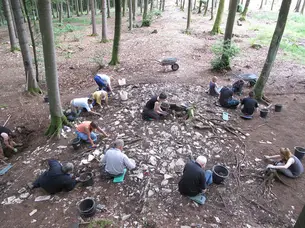Programme Profile
The master’s degree programme in Archaeology of the Roman Provinces is aimed at graduates who have completed studies in Archaeology and have a particular interest in the cultural and material legacies of the provinces of the Roman Empire. In the standard programme duration of four semesters, 120 ECTS points are to be acquired.
Students are taught an in-depth, specialised curriculum, as well as information related to the labour market. This programme also intends to awaken sensitivity and awareness of a European perspective of our cultural and societal understanding among the next generation of researchers and, in doing so, also be perceived by other humanities disciplines as an asset to the range of subjects offered at the University of Bamberg.
Focus areas
As well as gaining in-depth archaeological skills with a specialisation in the field of Archaeology of the Roman Provinces, this programme offers students the opportunity to establish their own focus areas in the required and distribution elective components. By enabling combinations with other archaeological disciplines (e.g. Medieval and Post-Medieval Archaeology, Prehistoric and Ancient Archaeology, Classical Archaeology, Christian Archaeology), and also Ancient History, Classical Philology, or Historical Geography, students can develop their own focus areas in the fields of archaeology, heritage conservation or general cultural history. In this way, students also learn about the wide range of interdisciplinary intersections and how to utilise these.
Programme objectives
- Upon successfully completing the degree programme, graduates are able to apply academic knowledge and approaches to questions and complex problems in the field of archaeology of the Roman provinces.
- Graduates possess in-depth knowledge in the subject areas of settlements, infrastructure, military history, religion, sepulchral culture, cultural history, economics and architecture.
- They have learnt how to deal with the relevant material and written sources of the archaeology of the Roman provinces and can contextualise them independently.
- Thanks to a mandatory internship in a field of their choosing (for example as part of a research excavation, in a museum or in a research institute), graduates have gained an initial insight into professional practice and have established a starting point for a professional career in the field of archaeology in the Roman provinces.


